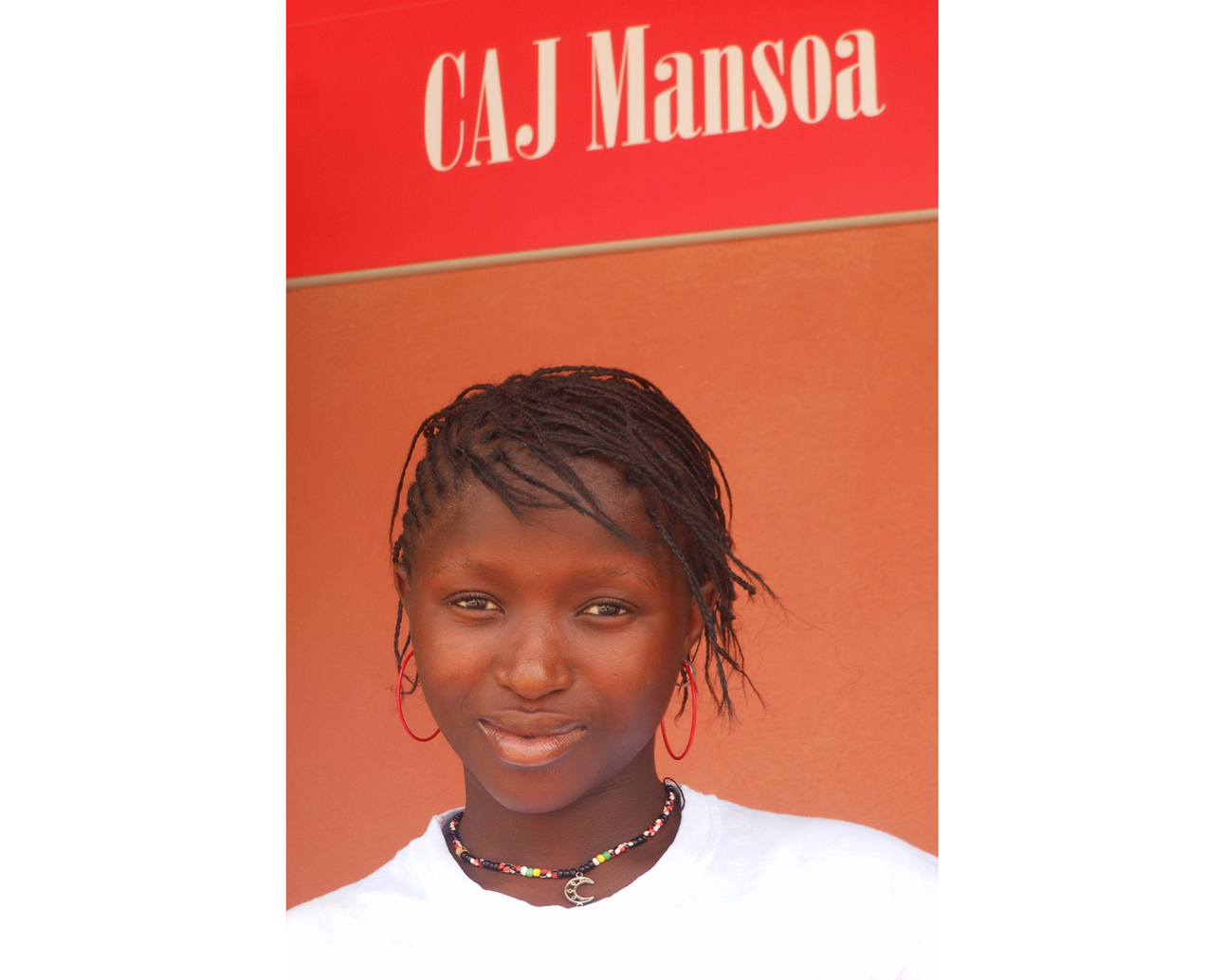

MDG-F justice programme helps Guinea-Bissau girl avoid child marriage

17-year-old Luisa Sambu remembers the day last November when relatives burst into her home in western Guinea-Bissau and tried to force her to marry a much older man, one who already had a wife and two children, one almost Luisa’s age.
"My uncles came with five people to take me by force, but I managed to escape,” recounts Luisa, who was orphaned at 13 and lives with a woman who cares for her in exchange for housework. The young girl’s story is repeated daily across Guinea-Bissau, where a quarter of all women are married before the age of 18.
Luisa was able to avoid the same fate with the help of a nearby Access to Justice Center (CAJ), one of four recently established with the support of the MDG-Fund to improve Guinea-Bissauan’s access to judicial services, particularly vulnerable populations such as women and the poor.
"I went to ask for help because I do not want to marry", explains Luisa, who says she wants to continue to study and have the right to decide when and whom to marry. “I had been told that the CAJ gave support to children and women victims of violence and that if I needed help, there were legal technicians who could help.”
Since opening in September 2011, the CAJs have handled more than 800 cases, providing free legal consultations, mediation and conciliations. They have also conducted awareness sessions to over 5,000 citizens on issues such as children rights, women’s rights, illegal detentions, traditional justice and gender equality.
The access to justice project is a component of the MDG Fund’s Strengthening Justice and Security Sector Reform programme, a collaboration between the government and four UN agencies aimed at bolstering both the people’s confidence in and use of formal justice sector institutions. It was launched after extensive surveys and consultations with local populations, and is part of the MDG-F’s broader goal of helping countries achieve the anti-poverty Millennium Development Goals, with a particular focus on the most marginalized and excluded populations.
Guinea-Bissau is one of the poorest countries in the world. Civil war, multiple coups and assassinations and protracted unrest have created profound political instability and extremely fragile institutions. In addition to improving access to justice and providing training for legal sector actors, the aim of the Joint Programme is to bolster security and law enforcement and spur legislative reform to protect citizen's rights.
At present, courts in Guinea Bissau function sporadically and inefficiently, and people, particularly in rural areas, has limited access to the formal justice system, including to legal counseling and representation. Women, who are vulnerable to sexual and gender-based violence, face particular difficulty accessing justice. The result is that most disputes are resolved through traditional and customary mechanisms that can produce decisions that are unfair, exclusionary and discriminatory, especially in matters such as land, inheritance and family-related issues.
Emilio Abdul Kalil turned to the Access to Justice Center when land that had been in his family for 80 years was suddenly occupied, under the approval of a local administrator who claimed the land was state property.
"A group of people took over my land and the space of my house," explains Emilio, 62, who said the administrator barred him from building on his own property. After two years of efforts, Emilio appealed to the CAJ for help to resolve the situation.
"The legal assistants came to the administrator, showed the documents that proved that the land was legally mine, and advised him to follow the path of legality,” said Emilio. The administrator was forced to leave in December. “This CAJ project is very beneficial, very useful for the entire population of Guinea-Bissau, a population that is very wronged and deprived of all the conditions to face justice. "
In Luisa Sambu’s case, legal assistants from the CAJ in the town of Mansoa spoke with the young woman’s family, who have since dropped their insistence that she marry. Although her uncles had told her that she would “go wrong in life” if she refused to marry, she says she is glad she stood firm.
"Even if it goes wrong, I do not want to marry, and I’m feeling stronger with the support of the Centre,” she says.
Click here to read about the MDG-F's work in Guinea-Bissau.
Click here to read other success stories from the MDG-F's work to fight poverty and improve livelihoods around the world.